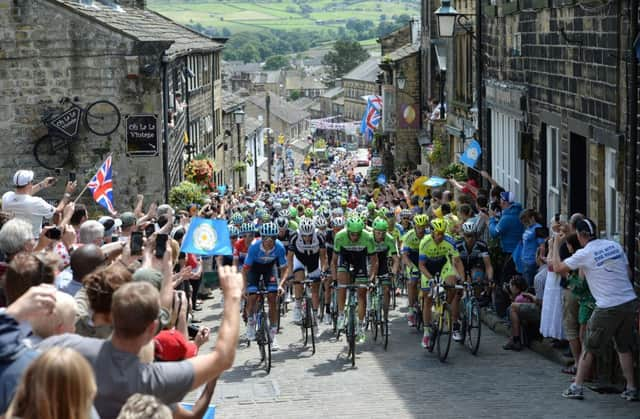How Tour de France was used to harness 'pupil power' at a Sheffield school


But now a new study has revealed that it also had an impact in the classroom for one school on the route of the world famous cycle race.
A report published today sets out lessons learned from a pilot programme to see whether giving pupils more control over projects they were working on could re-engage them with learning. The think-tank Demos tested this at four schools across the country - including Firth Park Academy in Sheffield. The “Pupil Power students” involved were those seen as being at risk of becoming disengaged.
Advertisement
Hide AdAdvertisement
Hide AdThe new report says Firth Park used the school’s Tour de France celebration events to get pupils involved. Students were given a choice over how to be involved and were encouraged to divide up tasks as a group.
All participating students also discussed their goals with staff with one-to-one sessions focused on behaviour and barriers to learning. Another school in the region taking part was John Whitgift Academy, in Grimsby, where students set up a lunchtime club after the school decided a lack of activities was a cause of boredom and disruptive behaviour.Pupils set up the club and were given responsibility for advertising it to pupils and ensuring equipment was available. Demos said results nationally were mixed but overall almost half of students (45 per cent) saw an improvement in behaviour. There was also an 11 per cent drop in students reporting they frequently get into trouble at school.
Demos said that the scheme in Grimsby had been one of the most successful.
Overall the think-tank found that giving students greater control and independence to lead collaborative projects during school hours can help tackle educational disengagement.
Advertisement
Hide AdAdvertisement
Hide AdThe report published today, Pupil Power, sets out the lessons learned between 2013 and 2015, which tested whether “co-production” could encourage at-risk students to re-engage with learning.
Pilots were held in Birmingham, Grimsby, the London Borough of Newham, and Sheffield.
Schools were asked to nominate students who were disengaged or at risk of becoming so to take part, supervised by two dedicated members of staff and supported by training from Demos.
The think-tank said that while impact overall was mixed, because of differing levels of participation, the clearest results included improved behaviour, confidence and soft skills, and relationships with teachers. Interviews with staff and students involved in the pilot indicated a high level of satisfaction with the projects, with people appreciating the element of choice, the ability to speak freely, and the opportunity to draw on their personal talents.
Advertisement
Hide AdAdvertisement
Hide AdThe report’s author Ian Wybron, a researcher at Demos, said: “Disengagement from learning is a widespread and persistent problem in education, wasting the potential of learners, closing doors to good jobs, and ultimately harming the wider economy. Co-production offers a new way of approaching the problem: empowering disengaged students to take charge over their learning and to run their own projects, giving them new reasons to want to be in school. Our experience has shown how challenging this process can be, but also its enormous potential to encourage pupils whose experience in education might previously have been defined by their disengagement to be seen in a new light, grow in confidence, and make positive contributions to their school community. “